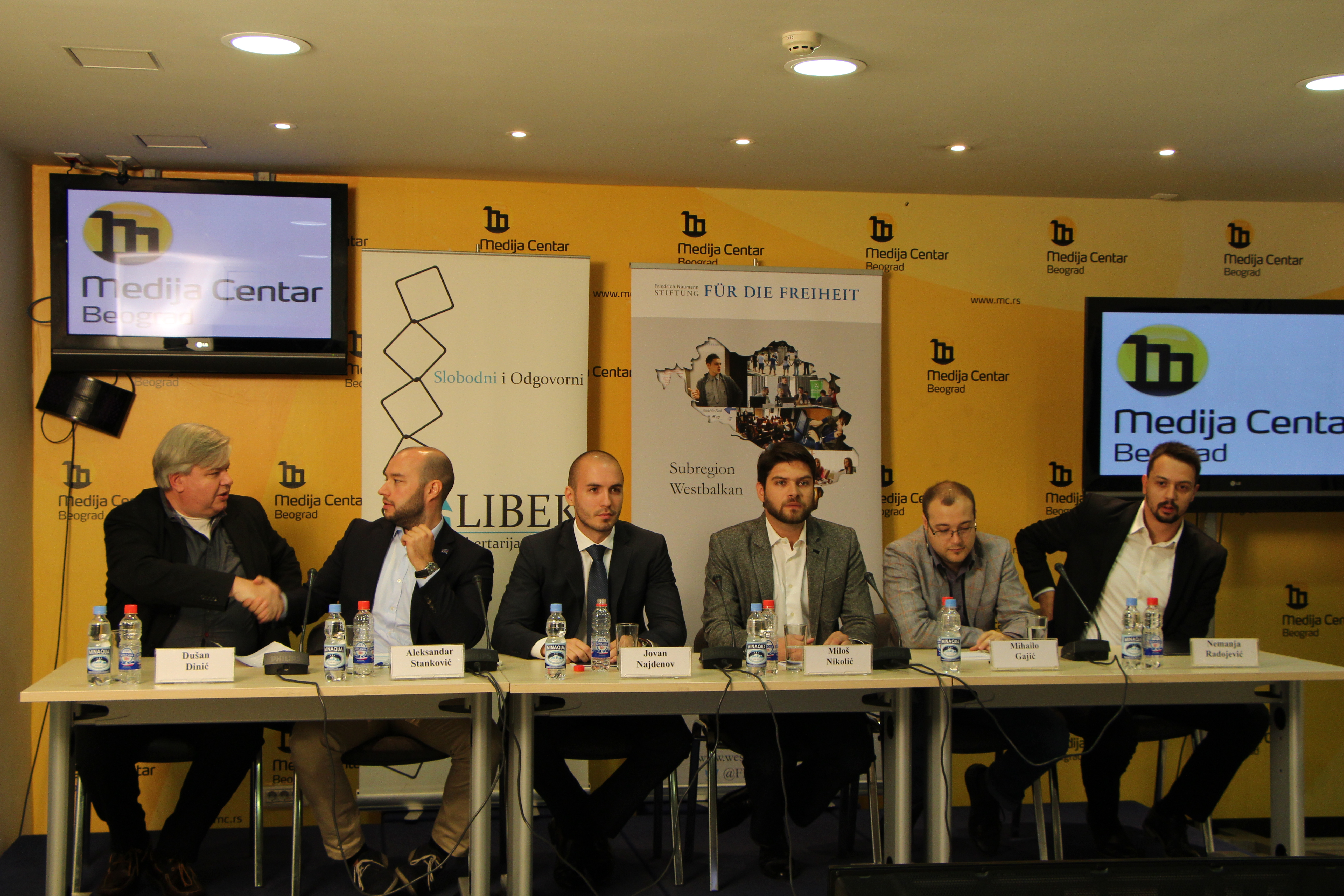Economic section of the EU Progress Report on Serbia

The media conference regarding the economic section of the latest EU Progress Report on Serbia was organized by Friedrich Naumann Stiftung in collaboration with Libertarian club LIBEK at Media centre of NUNS, on the 21st of October. The list of speakers included representatives of FNS, LIBEK and pro market party opposition in Serbia, Nova stranka, LDP and Dosta je bilo.
Dusan Dinic (FNS representative) emphasized the lack of public discussion on this very important topic for the Serbian society. Even the Office for EU integration does not make any effort in order to explain the content of the Progress Report to the citizens. All of this leads to alienation of the EU integration process from the citizens, because the process itself is long lasting, complicated and costly, leaving citizens uninformed.
Mihailo Gajic (LIBEK research department program director) highlighted the importance of economic part of the Progress Report, stating that 20 out of 35 negotiation chapters are strictly economical, while another dozen of them have serious economic consequences. This should not be a surprise, bearing in mind the fact that economic integration is at the core of EU integration process – it served as a vehicle that propelled political integration. The biggest problems noted in the Report are low levels of the rule of law, public enterprise monopoly, enterprises in restructuring, high bureaucracy and fiscal policy. There is a moderate advance in all 20 chapters (such as new regulation on labour, privatization and insolvency, further implementation of public procurement law and partial electricity market liberalization). The Report states serious problems in the area of competition policy (due to the status of enterprises in restructuring), market liberalization, Srbijagas monopoly and the project South Stream, which is openly against the acquis.
Jovan Najdenov (Liberal Democrat Party) conveyed the message that the government has not been capable to implement the announced reforms. Bearing in mind the government’s legitimacy won at the polls, there are no serious obstacles to the reforms process but unfortunately the results are not satisfactory. Economic indicators are worsening, and they are directly linked to the political ones: foreign policy alignment with the EU regarding the Ukraine crisis is crucial for Serbia’s future.